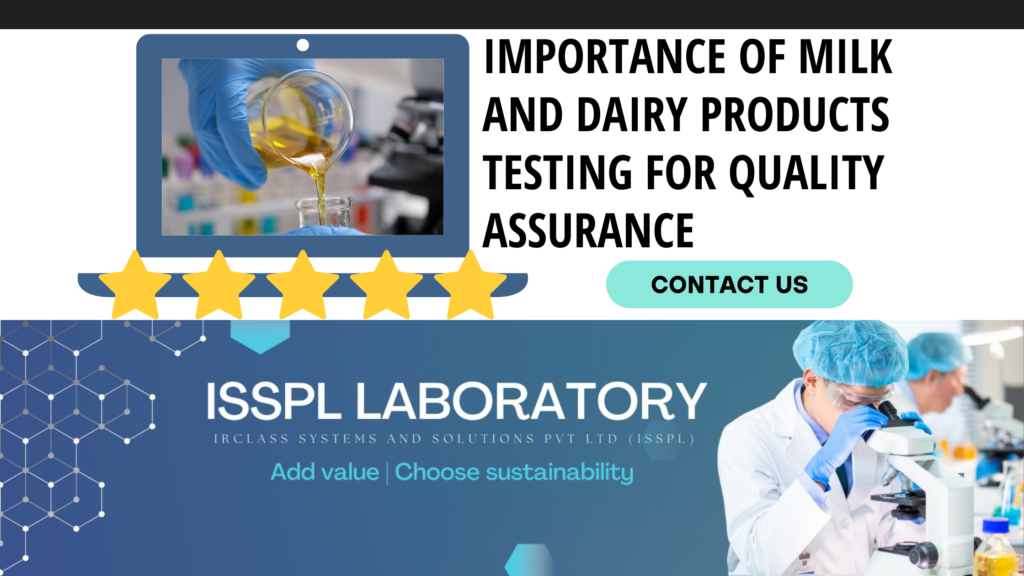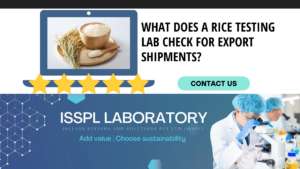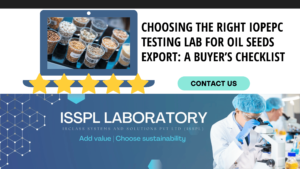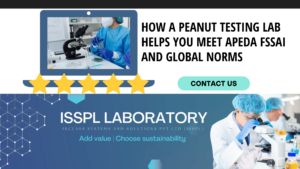An Overview by Team ISSPL - Analytical Testing Laboratory in India
ToggleMilk and dairy products are staple foods in diets worldwide. They are consumed in various forms, including milk, cheese, yogurt, butter, cream, and other processed products.
Their rich nutritional profile, which includes essential proteins, calcium, vitamins, and fats, makes them an indispensable part of a balanced diet. However, due to their perishable nature and susceptibility to contamination, maintaining the quality and safety of dairy products is critical.
Milk and dairy product testing is a systematic approach to ensuring that these foods meet safety and quality standards.
Through testing, manufacturers can identify contaminants, verify nutritional content, and comply with regulatory requirements, ensuring that consumers receive safe and high-quality products.
What is Milk and Dairy Product Testing?
Milk and dairy product testing involves a series of analyses to evaluate the safety, nutritional composition, and quality of dairy items. The goal of these tests is to ensure that dairy products meet predefined standards for human consumption.
Testing is conducted at different stages of production, from raw milk collection to the processing and packaging of finished products.
Testing examines several parameters, including:
- Microbial content: Detecting harmful bacteria, molds, or yeasts.
- Chemical composition: Verifying fat, protein, and lactose content.
- Contaminants: Identifying pesticide residues, heavy metals, or toxins.
- Physical properties: Ensuring the texture, color, and viscosity meet expectations.
By conducting these analyses, manufacturers can ensure that their dairy products are safe, consistent, and compliant with regulations.
Why is Dairy Product Testing Important?
Testing milk and dairy products is crucial for several reasons. It ensures that products meet safety standards, deliver the nutritional benefits they promise, and maintain the trust of consumers. Here are the key reasons why testing is essential:
- Ensuring Consumer Safety
Milk and dairy products are highly perishable, making them susceptible to microbial contamination. Harmful pathogens like Salmonella, E. coli, Listeria, and Staphylococcus aureus can thrive in dairy products if proper hygiene and storage conditions are not maintained. Testing identifies these pathogens, preventing them from reaching consumers and causing foodborne illnesses.
- Verifying Nutritional Content
Dairy products are a significant source of essential nutrients such as calcium, proteins, and fats. Testing ensures that the nutritional content aligns with the labeled specifications. This is particularly important for fortified products, like milk with added vitamins or yogurt enriched with probiotics, where accurate labeling is critical to consumer trust.
- Detecting Adulteration
Adulteration in milk and dairy products is a common concern. Examples include the addition of water, non-dairy fats, or synthetic milk components to increase volume or reduce production costs. Testing helps detect such adulteration, ensuring the authenticity and quality of dairy products.
- Meeting Regulatory Standards
Governments and regulatory bodies set strict quality and safety standards for dairy products. Testing ensures that products comply with these regulations, protecting manufacturers from legal issues and ensuring market access. Non-compliance can lead to product recalls, fines, or a damaged reputation.
- Extending Shelf Life
Testing helps manufacturers monitor factors like microbial load and chemical stability, which directly affect shelf life. By ensuring products are safe and stable over time, testing reduces waste and improves profitability.
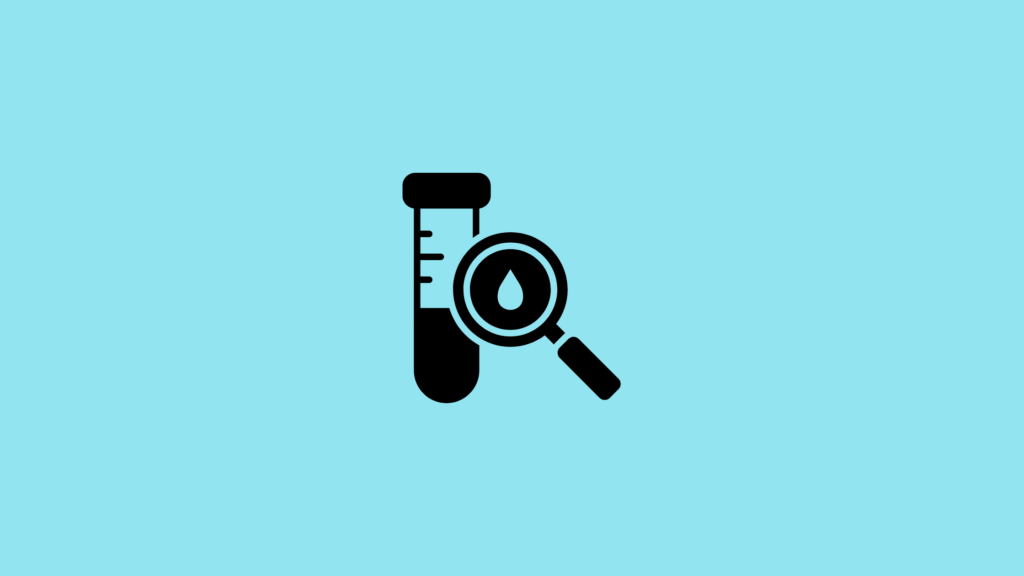
Common Tests for Milk and Dairy Products
Dairy testing involves a variety of tests, each designed to examine specific parameters. These tests help manufacturers assess the quality and safety of their products before they reach consumers.
Microbiological Testing
Biological tests detect pathogenic organisms in dairy products. These include:
- Total Plate Count (TPC): Measures the total number of microorganisms in a sample.
- Pathogen Detection: Harms bacteria such as Listeria, E. coli, Salmonella, etc are precisely detected.
- Yeast and Mold Counts: Scans for fungal presence that may affect products and be detrimental to health.
Chemical Analysis
Chemical tests evaluate the composition and purity of dairy products. Common parameters include:
- Fat Content: Ensures that the product meets nutritional and regulatory requirements.
- Protein Content: Verifies the protein levels in milk, cheese, and other dairy products.
- Lactose Content: Essential for products marketed as lactose-free or low-lactose.
- Adulteration Detection: Identifies added water, starch, or non-dairy fats.
Contaminant Testing
Contaminant testing ensures that dairy products are free from harmful substances. This includes:
- Pesticides: Residues from agricultural practices.
- Heavy Metals: Contaminants like lead, mercury, and cadmium.
- Aflatoxins: Toxins produced by molds that can grow in animal feed and contaminate milk.
Physical and Sensory Analysis
Physical tests assess the appearance, texture, and consistency of dairy products. Sensory analysis involves taste, smell, and visual evaluation, ensuring the product meets consumer expectations.
Importance of Quality Assurance in Dairy Testing
Quality assurance (QA) is a systematic approach to maintaining the safety and quality of dairy products. QA processes involve regular testing, monitoring, and adherence to predefined standards at every stage of production. Here’s why quality assurance is vital:
- Consumer Trust
Consumers rely on dairy brands to deliver safe and high-quality products. QA ensures that products are consistent in taste, texture, and nutritional value, building trust and loyalty.
- Preventing Foodborne Illnesses
QA helps detect and eliminate microbial contamination, protecting consumers from diseases caused by pathogens commonly found in dairy products.
- Reducing Product Recalls
Product recalls are costly and damaging to a brand’s reputation. QA minimizes the risk of recalls by identifying issues early in the production process.
- Supporting Regulatory Compliance
Compliance with local and international food safety standards is mandatory for dairy manufacturers. QA ensures that products meet these requirements, facilitating trade and market access.
- Enhancing Market Value
High-quality products command better prices and customer loyalty. QA ensures that dairy products meet premium standards, enhancing their market value.
Challenges in Dairy Quality Assurance
Despite advancements in testing technologies, the dairy industry faces several challenges in maintaining quality assurance. These include:
- Perishability
Milk and dairy products are highly perishable, requiring stringent temperature control and timely testing. Delays in testing or transportation can compromise product quality.
- Complex Supply Chains
The dairy supply chain involves multiple stages, from farm to processing plant to retail. Each stage presents opportunities for contamination, making traceability and quality control challenging.
- Adulteration
Economic motivations often lead to the adulteration of dairy products. Detecting and preventing adulteration remains a significant challenge for QA systems.
- Emerging Pathogens
New microbial threats require constant updates to testing protocols, placing additional pressure on QA systems.
Advancements in Dairy Testing Technologies
The dairy industry has adopted several advanced technologies to improve testing efficiency and accuracy:
- Rapid Testing Methods
Modern diagnostic tools like Polymerase Chain Reaction (PCR) and Enzyme-Linked Immunosorbent Assay (ELISA) allow for the quick and accurate detection of pathogens and contaminants.
- Automated Analyzers
Automation in chemical and microbiological testing has enhanced precision and reduced the time needed for large-scale testing.
- Digital Traceability
Data management systems enable end-to-end traceability, helping manufacturers monitor quality and comply with regulations.
Role of Accredited Testing Laboratories
Accredited laboratories play a vital role in dairy product testing. These laboratories provide reliable and standardized testing services, helping manufacturers ensure compliance and maintain high-quality standards. For example, laboratories like ISSPL (Integrated Scientific Services Private Limited) specialize in comprehensive testing services for dairy products. They use state-of-the-art equipment and adhere to strict protocols to deliver accurate and reliable results.
Conclusion
Milk and dairy products are essential to diets worldwide, providing vital nutrients and enhancing the culinary experience.
However, their perishable nature and vulnerability to contamination make rigorous testing and quality assurance processes necessary. From detecting pathogens to verifying nutritional content and ensuring regulatory compliance, dairy testing safeguards consumer health and builds trust in the industry.
Regular testing not only protects public health but also helps manufacturers maintain consistent product quality, extend shelf life, and comply with standards. As the dairy industry evolves, embracing advanced testing technologies and adhering to stringent quality assurance protocols will remain critical.
For reliable and comprehensive testing services, laboratories like ISSPL are instrumental. With expertise in microbiological, chemical, and contaminant testing, they ensure that dairy products meet the highest standards of safety and quality. To learn more about their services, visit ISSPL.
